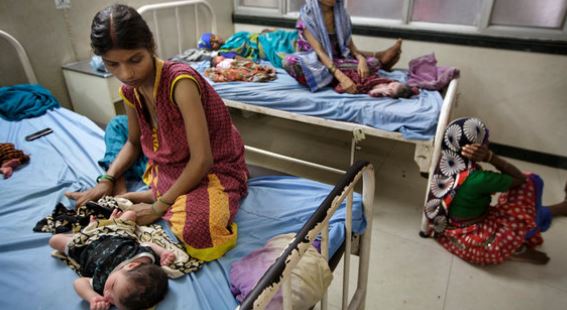Many young Indian women underweight, their babies too: research

Researchers have long puzzled over why children in India, despite being wealthier, are shorter and smaller than children in sub-Saharan Africa.
At least part of the answer may be a patriarchal society that puts young women on the lowest rung of the social ladder, according to a paper published in the Proceedings of the National Academy of Sciences (PNAS).
Delhi-based economist Diane Coffey found that maternal health in India is worse than previously believed, and that 42.2 percent of Indian women of childbearing age are underweight.
“In India, young, newly married women are at the bottom of household hierarchies, and have even lower social status than older women,” said Coffey, a doctoral student at Princeton and visiting researcher at the Delhi School of Economics.
“At the same time that Indian women become pregnant, they are often expected to keep quiet, work hard and eat little,” she said, adding that young women cook family meals but often eat only leftovers, after everyone else has finished.
Because weight gain during pregnancy averages 7 kg in both India and Africa – compared with U.S. recommendations of 12.5 to 18 kg for underweight women – many Indian women reach full-term pregnancy weighing less than an average pre-pregnant sub-Saharan African woman.
Infants whose mothers do not weigh enough when they are born are more likely to die in the first month of life or be underweight themselves, leading to stunted physical and cognitive growth later in life.
Before Coffey’s new estimates, the most commonly cited statistic was from the Indian government’s latest demographic and health survey from 2005, showing that 35.5 percent of all adult women, aged 15 to 49, are underweight, she said.
However, pregnancy in India is concentrated between the ages of 18 and 25, so Coffey adjusted the statistics and arrived at a more precise figure for underweight women in that age range, nearly 7 percentage points higher (…)
Reuters

